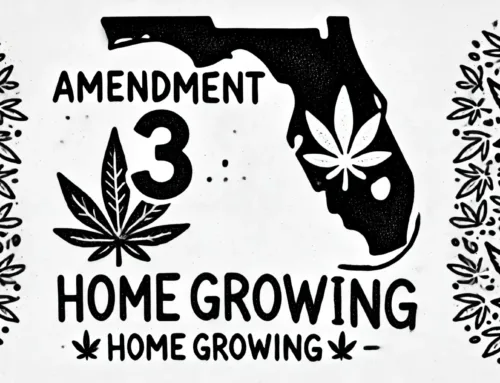The Entrapment Defense in Florida Criminal Cases
Entrapment is a criminal defense that can be raised when law enforcement officers or government agents improperly encourage or induce a defendant to commit a crime they were not already predisposed to commit. Entrapment claims are based on the conduct of law enforcement in essentially creating crime rather than uncovering existing criminal activity. This defense is recognized under Florida criminal law and statutes.
Raising an entrapment defense requires showing either subjective or objective entrapment. Subjective entrapment focuses on the defendant’s lack of predisposition to commit the crime before law enforcement became involved. Objective entrapment analyzes whether police conduct went too far by targeting innocent people not previously engaged in criminal activity.
An experienced criminal defense attorney can help defendants understand what constitutes entrapment and how to raise this defense in court. Police utilize various undercover operations and sting operations to catch criminals in the act. However, these tactics sometimes cross the line and unfairly induce crime.
What is Entrapment? Entrapment Definition Under Florida Law
Florida’s entrapment statute defines entrapment as follows:
A law enforcement officer, government agent, or confidential informant working with police perpetrates an entrapment if they induce or encourage someone to engage in criminal conduct through persuasion or inducement that creates a substantial risk of causing a person otherwise not ready to commit the crime to do so.
The key aspects of this entrapment definition are:
- The inducement must come from a law enforcement officer, government agent, police informant, or someone working with law enforcement. Entrapment involves police activity that manufactures crime rather than detecting existing criminal acts.
- There must be actual persuasion, coercion, or inappropriate encouragement beyond merely presenting the opportunity to commit a crime. Repeated pleading, harassment, exploitation of weaknesses, and other coercive tactics can constitute improper police inducement.
- The persuasion used must create a substantial risk that an average, law-abiding person not already engaged in criminal activity would commit the crime when they otherwise wouldn’t have.
Simply providing the means or opportunity to commit a crime does not amount to entrapment. There must be active encouragement through pleas, promises, threats, or exploitation of vulnerabilities.
The Subjective vs. Objective Test for Entrapment
Florida recognizes two different tests courts may use to analyze an entrapment defense:
1. Subjective Entrapment
This test focuses on the defendant’s state of mind and predisposition to commit the crime. Key questions include:
- Did a law enforcement officer, government agent, or police informant encourage or induce the defendant to engage in criminal conduct?
- Was the defendant already inclined or predisposed to commit this type of crime?
If police encourage someone not already predisposed to criminal acts into committing a crime, subjective entrapment may apply.
Predisposition can be shown through prior convictions, reputation, ready acquiescence in committing the crime, or statements and conduct demonstrating criminal intent.
The subjective test centers on the defendant’s criminal culpability rather than just the appropriateness of police conduct.
2. Objective or Due Process Entrapment
This test examines the conduct and methods used by law enforcement to induce the crime. The due process clause of the Florida Constitution prohibits egregious police activity that manufactures crime rather than uncovering existing criminal activity.
To avoid objective entrapment, police conduct must meet two standards:
- The goal must be to interrupt ongoing criminal acts rather than instigating brand-new crimes.
- The methods used must be reasonably tailored to catch those already involved in crime rather than unfairly inducing otherwise law-abiding people.
Objective entrapment focuses solely on improper police behavior, not the defendant’s prior criminal history or predisposition. Predisposition is irrelevant under this analysis.
Raising an Entrapment Defense in Court
Defendants can assert entrapment through pretrial motions to dismiss, motions for acquittal during the trial, or requesting an entrapment jury instruction at the end of the trial.
The procedures partly depend on whether subjective or objective entrapment is claimed:
- For subjective entrapment, the defendant must present some evidence of lack of predisposition and police inducement. If factual disputes exist, the jury decides on the question of predisposition. If facts are undisputed, the judge can rule on entrapment as a matter of law.
- Objective entrapment involves a question of law for the judge to decide. The defense can file a sworn pretrial motion to dismiss, describing police misconduct violating due process principles. No evidentiary hearing is required.
- Both kinds of entrapment can also be raised through motions for judgment of acquittal during the prosecution’s case.
- If the case proceeds to a jury trial, the judge must give an entrapment instruction if the defense presented any evidence supporting this defense.
While entrapment often arises in drug stings, it also applies in other undercover operations and sting operations related to theft crimes, fencing stolen goods, Internet sex crimes involving minors, and more.
Examples of Entrapment vs. Legitimate Undercover Operations
Drawing the line between improper police inducement and legitimate undercover investigation can be challenging. Compare these examples:
Potential Entrapment
- An informant pressures a recovering drug addict who has been clean for years to obtain drugs for them through persistent requests, claiming their sick family member desperately needs the drugs for pain.
- Police conduct a sting advertising child pornography materials for sale and then arrest individuals who try to purchase the materials, with no evidence those people previously sought child pornography.
- An undercover officer or informant repeatedly contacts the defendant pleading for help obtaining drugs, offering large sums of money, or exploiting the defendant’s financial hardships.
- An informant uses romance, intimacy, or the promise of sex to convince an otherwise law-abiding person to participate in a drug deal.
Legitimate Investigation
- An undercover officer presents the opportunity to buy or sell drugs to someone already involved in ongoing drug dealing. The suspect readily agrees.
- Police place an unattended bag containing cameras in an airport, record individuals stealing the bag, then arrest them.
- An undercover officer responds to an Internet ad offering to meet a minor for sex, then arrests the adult who arrives at the meeting place.
- An informant arranges a drug deal with someone already involved in the drug trade without threats, harassment, or exploitation.
Consulting a Criminal Defense Lawyer
Have you been accused of a crime you feel you were entrapped or induced into committing unfairly? An experienced Florida criminal defense attorney can assess the police conduct in your case and determine if an entrapment defense applies.
Don’t let questionable police tactics lead to a conviction. Protect your rights. Contact a knowledgeable criminal defense lawyer today for a free case evaluation and legal advice regarding your defense options.
CALL US NOW for a CONFIDENTIAL INITIAL CONSULTATION at (305) 538-4545, or take a moment to fill out our confidential and secure intake form.* The additional details you provide will greatly assist us in responding to your inquiry.
THERE ARE THOUSANDS OF LAW FIRMS AND ATTORNEYS IN SOUTH FLORIDA. ALWAYS INVESTIGATE A LAWYER’S QUALIFICATIONS AND EXPERIENCE BEFORE MAKING A DECISION ON HIRING A CRIMINAL DEFENSE ATTORNEY ATTORNEY FOR YOUR MIAMI-DADE COUNTY CASE








